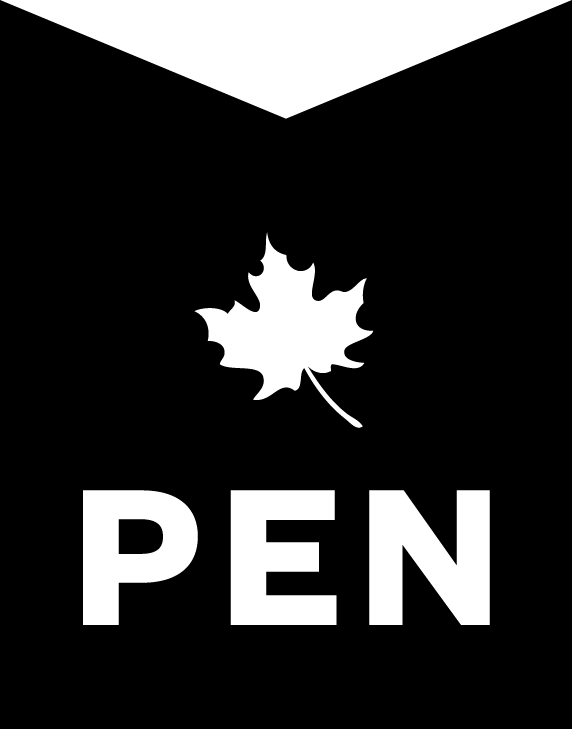International Initiatives
PEN Canada is one of nearly 140 PEN Centres around the world. Our centre has helped to produce in-depth reports that bring attention to governments that threaten writers, as well as visit those countries to build media capacity and offer safety training.
In the last decade, in collaboration with partners, PEN Canada produced book-length studies of freedom of expression in Mexico, Honduras and India.
Partnering with PEN International and the International Human Rights Program at the Law Faculty of the University of Toronto, PEN Canada has chronicled the use of national security legislation and the legal system to chill and stifle freedom of expression in India, and the impact of government impunity on journalists in Mexico, Honduras and Guatemala.
These initiatives earned PEN Canada an audience with the Inter-American Commission on Human Rights in Washington, and with Canada’s House of Commons Standing Committee on International Trade. Our work has also (1) informed PEN International’s advocacy in international fora; (2) contributed to the revision of legislation and the creation of a protective mechanism for journalists in Mexico: and (3) helped establish a PEN centre and prize for investigative journalism in Honduras, and a security training workshop for Indigenous female journalists in Guatemala.
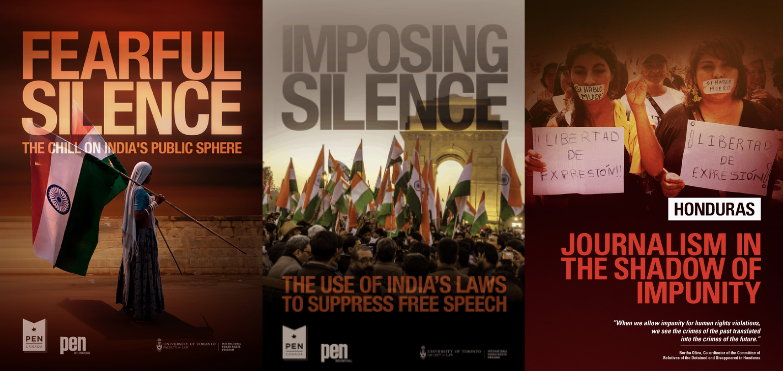
Country Reports
A Country Report documents the threats faced by independent journalists, community broadcasters and racial, religious, sexual and political minorities. Many of these people have been branded as subversives and, without the interest of groups like ours, they face further harassment and violence.
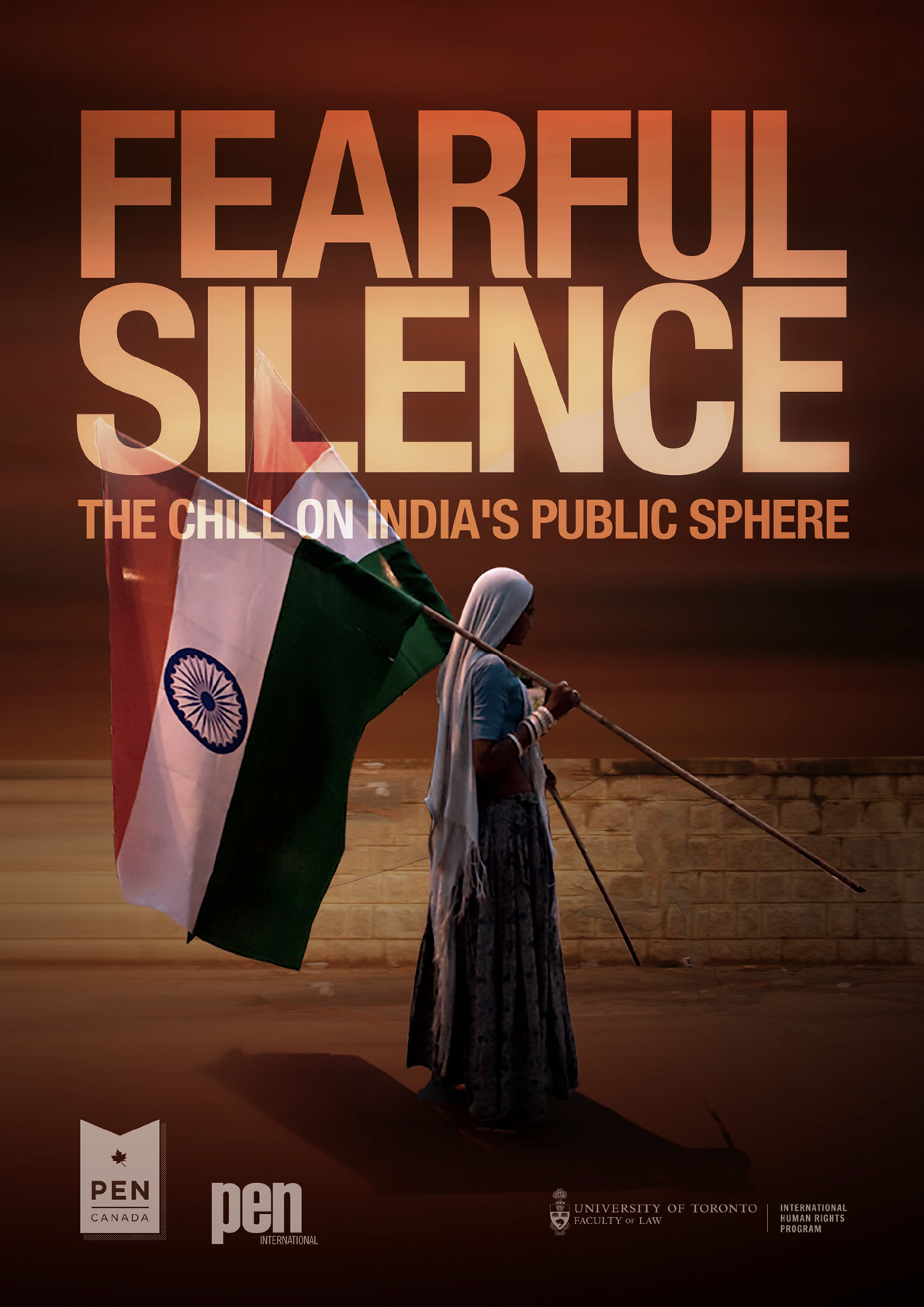
This report recounts how an overlapping network of vague, overbroad laws and a corrupt and inefficient justice system in India has resulted in the chilling of free speech in that country. An update to an earlier analysis of restrictions on free speech in India (see below) Fearful Silence: The Chill on India’s Public Sphere demonstrates how a relatively small number of aggrieved citizens can successfully deter many others from speaking out on sensitive issues, thereby endangering India’s key democratic freedoms.
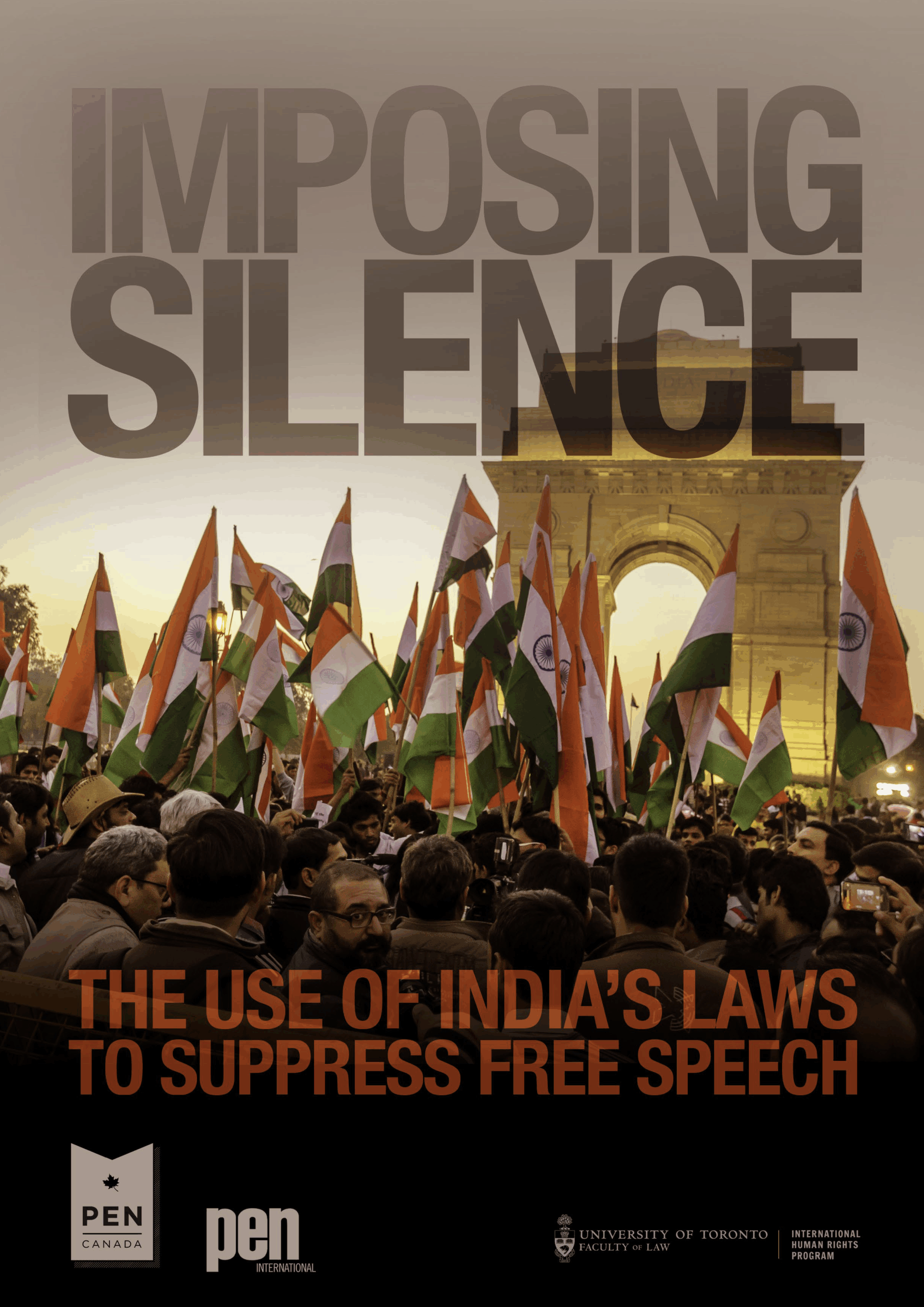
A ground-breaking report that details the abuse of overbroad and vaguely worded laws to enable censorship in the world’s largest democracy. The resulting chill silences political criticism and often discourages marginal voices from speaking out on sensitive social, cultural, and religious matters.
Despite its constitutional commitment to free speech, India’s legal system makes it surprisingly easy to silence others. Routine corruption, inefficiency, and the selective enforcement of vague and overbroad laws allow individuals, or small groups, to censor opinions they find distasteful. The Indian Penal Code (IPC) offers would-be censors a wide range of potential offences, many of which do not require malevolent intention on the part of the communicator. If you disagree with something that can be said to promote “enmity,” jeopardize “national integration,” “maliciously” insult religion, or foster “enmity between groups,” it is not difficult to invoke censorship.
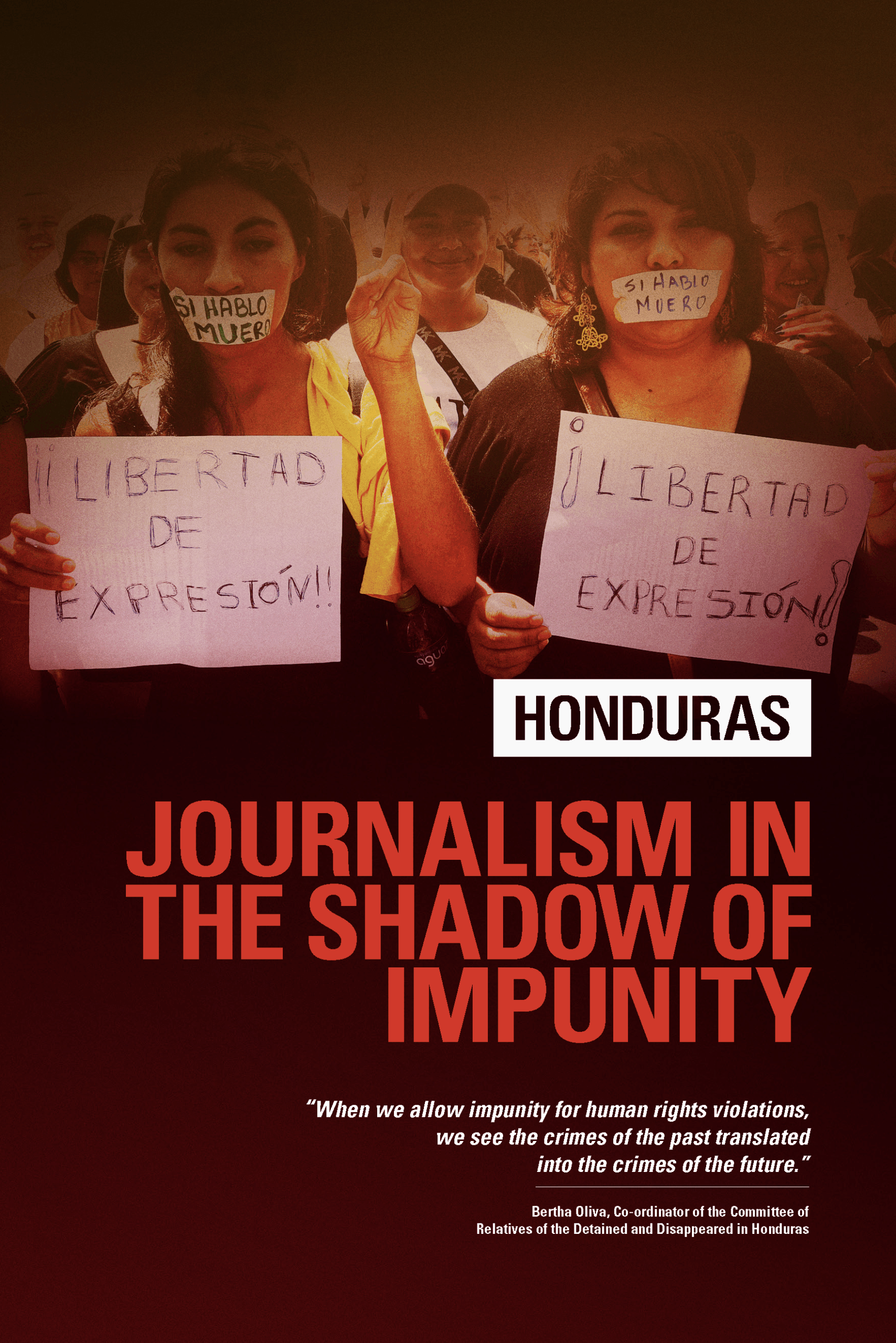
This study documents the entrenched climate of fear and self-censorship journalists in Honduras have been forced to work within since a military coup d’état ousted President Manuel Zelaya in June 2009.
Violence against journalists is not new to the Americas, nor is impunity, its customary bedfellow; but few observers could have foreseen the deluge of threats, attacks and targeted killings that swept through Honduras between 2009 and 2014. Reporters who cover corruption and organized crime are routinely targeted for their work and attacked or killed with almost complete impunity. Transnational drug cartels have infiltrated the country so effectively that the crisis in Honduras cannot be understood in isolation from its Central American neighbours. But an absence of reliable institutions allowed the violence to escalate far more rapidly than many anticipated. Much of the violence is produced by the state itself, perhaps most significantly by a corrupt police force.
This report earned PEN Canada an audience with the Inter-American Commission on Human Rights in Washington, and with Canada’s House of Commons Standing Committee on International Trade when it deliberated on a free trade agreement with Honduras in November 2013. This report also led to the creation of a new PEN centre — PEN Honduras — in the country’s capital, Tegucigalpa.
Special Reports
In November 2016, researchers from PEN Canada and the University of Toronto’s International Human Rights Program visited Guatemala to assess the climate for freedom of expression. A five-person delegation interviewed more than 20 human rights defenders, journalists, lawyers and writers before concluding that the past four years had seen the “escalating use of violence against journalists and human rights defenders, targeting women and Indigenous persons in particular.”
Findings from this trip were included in PEN’s submission to the 2017 UPR process, which also warned that these groups continued to work in a climate of “violence, fear and impunity” and often faced “stigmatization” and “criminalization.”
The report found that female journalists were particularly vulnerable to violence and intimidation, including sexual violence, and that indigenous journalists lacked adequate and meaningful access to media not only because of a restrictive and discriminatory legal framework but because few, if any, basic security measures were available to them.
This study examines the perilous conditions in which Mexican journalists have been forced to work while reporting on Mexico’s war on drugs. The publication was the result of joint research conducted by PEN Canada and the International Human Rights Program (IHRP) at the University of Toronto’s Faculty of Law.
The year-long Campaign on Freedom of Expression and Impunity, focusing on unsolved and unpunished crimes aimed at silencing writers and journalists, was launched on November 25, 2002, in San Miguel de Allende, Mexico, during a conference of the Writers in Prison Committee (WiPC) of International PEN. Direct actions have been taken throughout the year and culminated with the release of this PEN report on the problem of impunity and a roundtable during International PEN’s 69th World Congress of Writers in Mexico in November 2003.
The campaign was led by PEN Canada and found partners in the Writers in Prison Committee of International PEN, PEN American Center and PEN Mexico.
Special Projects Abroad
Guatemala
In 2016, alongside the University of Toronto’s International Human Rights Program (IHRP), PEN Canada visited Guatemala to review its record on freedom of expression. With our findings and report on Guatemala, PEN International subsequently made a submission in 2017 to the UN Universal Periodic Review describing escalating violence against journalists.
Determined to do more, PEN formed a partnership with UDEFEGUA (La Unidad de Protección a Defensoras y Defensores de Derechos Humanos Guatemala) to stage a three-day security workshop for Indigenous women journalists. It was led by Frank Smyth, ED of Global Journalist Security.
Honduras
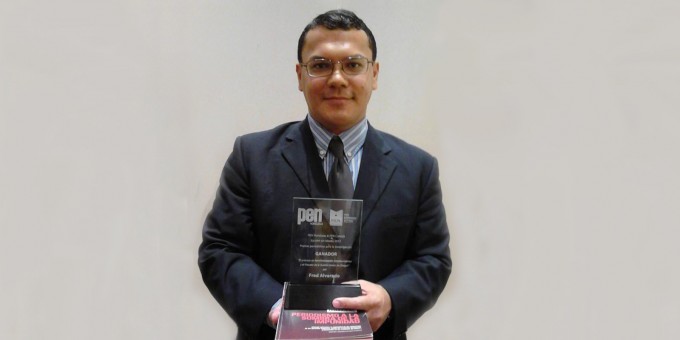
The situation was dire: fifty journalists had been murdered in the past decade in Honduras. PEN Canada staff and Writers in Peril Committee chair visited Tegucigalpa, capital of Honduras, to have more than 14 meetings with writers, human rights activists, and government officials. The trip, funded by the British Embassy in Guatemala, formed the basis of PEN Canada’s special report, Honduras: Journalism in the Shadow of Impunity.
Following the publication of the report, Dina Meza, a Honduran journalist, and her colleagues set up a PEN centre in Tegucigalpa. PEN Canada successfully sponsored the formal adoption of this centre, PEN Honduras, as PEN’s 150th local centre in 2014, at the 80th PEN International congress in Bishkek, Kyrgyzstan.
In April of that year, PEN Canada gave testimony before the House of Commons Standing Committee on International Trade on the human rights implications of Canada’s proposed free trade agreement with Honduras. There was substantial press coverage of the Honduras report and our committee appearances.
Subsequently, PEN Canada and the newly established PEN Honduras, again with funding from the British embassy in Guatemala, launched a prize for investigative and public interest journalism in Honduras: Escribir Sin Miedo (writing without fear). PEN also campaigned for the Honduran government to drop its criminal defamation laws.
Subscribe for updates about PEN Canada’s work to defend free expression.
